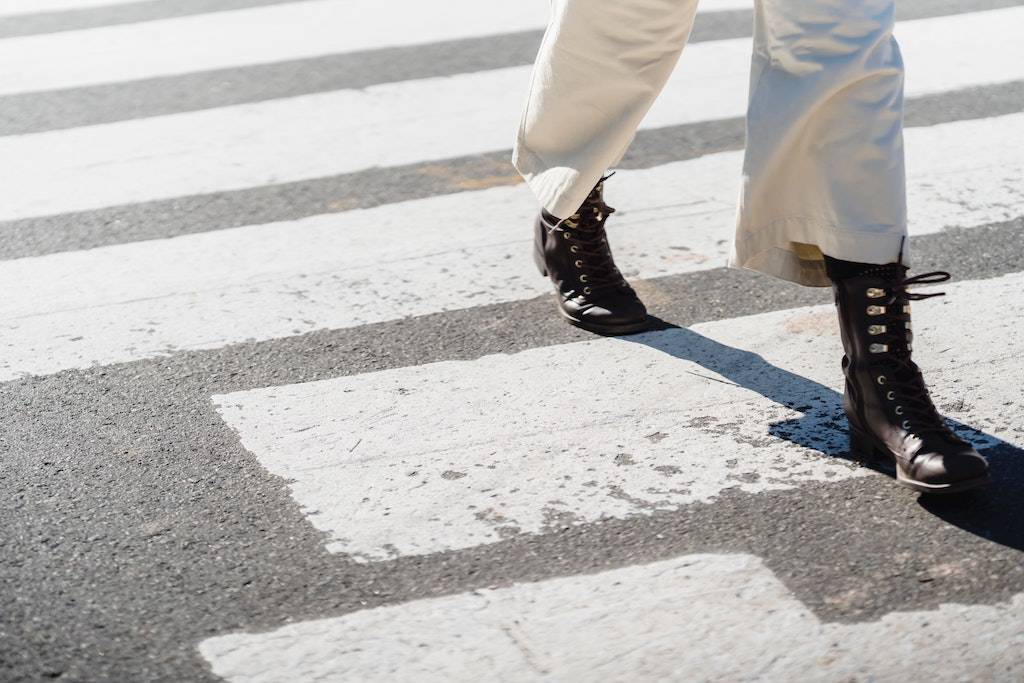Explore how a pedestrian accident lawyer can help navigate through complex legal scenarios following pedestrian accidents. Learn about their role, responsibilities, and how to select the right lawyer.
“Navigating Legalities with a Pedestrian Accident Lawyer” embraces the intricacies surrounding the role of a pedestrian accident lawyer in resolving cases related to pedestrian accidents. It sheds light on how such a lawyer can help you understand, navigate through, and overcome the legal hurdles that often arise in the wake of these unfortunate incidents.
Drawing from extensive legal knowledge and experience, this article provides valuable insights into what you can expect from a pedestrian accident lawyer and how their expertise can significantly impact the outcome of your case.

This image is property of images.unsplash.com.
Understanding Pedestrian Accidents
Pedestrian accidents encompass any type of incident where a person is struck by a vehicle while walking. These accidents often present severe repercussions and unique legal scenarios which need careful evaluation and understanding.
Common Causes of Pedestrian Accidents
Numerous factors may cause pedestrian accidents, ranging from driver negligence to infrastructure deficiencies. Driver negligence often involves reckless driving, distracted driving, or driving under the influence of alcohol or drugs. In other instances, poor road conditions such as lack of proper signage or poor lighting may put pedestrians at increased risk.
Types of Injuries Sustained in Pedestrian Accidents
The severity and type of injuries sustained in pedestrian accidents may vary significantly based on various factors. Such factors include the speed of the vehicle and the pedestrian’s immediate physical condition. Some common injuries may include fractures, traumatic brain injuries, spinal cord damage, and in severe cases, fatalities.
Duty of Care and Negligence in Pedestrian Accidents
All road users are expected to take reasonable steps to prevent accidents, a concept legally referred to as the “duty of care”. A driver who breaches this duty by speeding, drunk driving, or failing to yield the right of way may be deemed negligent and liable for any accident resulting from their actions.
When to Consult a Pedestrian Accident Lawyer
Retaining legal representation is essential after a pedestrian accident-related incident. However, the timing of hiring a lawyer varies based on the complexity of the situation.
Immediately After the Accident
It would be prudent to contact a pedestrian accident lawyer as soon as possible to initiate a prompt investigation into the accident. Early involvement of a lawyer allows for a comprehensive, thorough, and accurate gathering of necessary evidence.
When You Suffer Severe Injuries
In case of severe injuries, retaining a lawyer is crucial. Serious injuries may lead to long-term health effects or disabilities, escalating medical expenses, and potentially significant lost income, all of which may require knowledgeable legal assistance to pursue commensurate compensation.
If Multiple Parties Are Involved
When an accident involves several parties, determining liability becomes complicated. A competent pedestrian accident lawyer can navigate through claims against multiple parties, ensuring suitable representation and advocacy for your interests.
When Insurance Companies Deny Your Claim
Insurers might undervalue or reject your claim. In such scenarios, a lawyer can negotiate or challenge such decisions, ensuring you receive fair compensation.

This image is property of images.unsplash.com.
Choosing the Right Pedestrian Accident Lawyer
Choosing the right lawyer involves careful consideration of several critical factors.
Experience and Expertise
A lawyer’s relevant experience and expertise in handling pedestrian accident cases can significantly impact the outcome of your case. The lawyer’s familiarity with the intricacies of such cases may foster a more strategic approach.
Track Record of Successful Cases
A lawyer’s proven track record of successful outcomes in similar cases offers reassurance of their ability to efficiently handle your case. This history can indicate the lawyer’s proficiency and dedication to serving their clients’ interests.
Specialization in Pedestrian Accident Cases
Legal specialization matters. A lawyer who specializes in pedestrian accident cases will likely be well-versed in the specific laws, regulations, and common judicial attitudes regarding these cases, enhancing your representation.
Reputation and Client Reviews
The reputation of the lawyer may speak volumes about their professionalism, reliability, and dedication. Client reviews provide insights into the lawyer’s work ethic, relationship with clients, and success rates.
Initial Consultation and Case Evaluation
The primary consultation with your lawyer provides a platform to understand the legal implications of your accident, the possible legal paths you can take, and their potential outcomes.
Gathering and Reviewing Accident Evidence
The first step in your case evaluation involves collecting and critically reviewing available accident evidence. This documentation could include police reports, medical records, witness statements, and road condition reports.
Assessing Liability and Potential Damages
Your lawyer will scrutinize the evidence to determine liability and estimate potential damages, including medical costs, lost income, and non-economic damages.
Explaining the Legal Process and Your Rights
It is important for your lawyer to explain the legal process, your rights, and possible courses of action. With this knowledge, you can make informed decisions on the best way forward.
Discussing Legal Fees and Payment Structure
You should discuss and agree upon the legal fees and the payment structure during the initial consultation. This clarity will help avoid potential disputes or misunderstandings later in the process.

This image is property of images.unsplash.com.
Filing a Lawsuit and Legal Proceedings
If a lawsuit becomes inevitable, understanding the general procedural flow can help you navigate this stressful experience more effectively.
Preparing and Filing the Complaint
The complaint is the official document initiating the lawsuit. Your lawyer will draft this document, highlighting the pertinent facts of the case, outlining your claims, and explicitly stating the relief sought. Once drafted, the complaint is filed with the court.
Discovery Process and Collecting Evidence
During discovery, both sides share information regarding their cases. Additional evidence collection may occur during this phase to strengthen your case.
Negotiating Settlement or Pursuing Trial
Negotiating a fair settlement can sometimes resolve the case before the trial. However, if negotiations fail, the case will proceed to trial.
Presenting Your Case in Court
During the trial, your lawyer will represent you, presenting your case through witnesses, cross-examinations, and arguments, aiming to persuade the jury of the validity of your claims.
Proving Liability in a Pedestrian Accident Case
Proving liability is a legal prerequisite for winning your pedestrian accident lawsuit. The following legal steps outline a successful liability argument.
Establishing the Duty of Care
The law requires drivers to exercise reasonable care on the road. Your lawyer must establish that the defendant had a duty to exercise such care.
Proving Negligence or Recklessness
It is incumbent upon your lawyer to prove that the defendant failed to exercise reasonable care, acting negligently or recklessly.
Showing Causation between Negligence and Injuries
This step involves proving a direct causal link between the defendant’s negligence and your injuries, demonstrating that without the defendant’s act of negligence, your injuries would not have occurred.
Examining Comparative Negligence
Your lawyer will have to deal with any allegations of comparative negligence, where the defendant argues that you were partially responsible for the accident.
Calculating Damages in Pedestrian Accident Cases
Understanding the types and extent of damages recoverable in pedestrian accident cases can help in estimating the potential compensation.
Medical Expenses and Future Healthcare Costs
Medical expenses, including the cost of future healthcare needs resulting from the accident, make up a significant portion of the damages.
Lost Wages and Diminished Earning Capacity
If your injuries prevent you from working, you may claim compensation for lost wages and diminished future earning capacity if your ability to work has been permanently affected.
Pain and Suffering Damages
Pain and suffering include both physical pain and emotional distress caused by the accident and injuries. These types of damages can significantly increase the value of your claim.
Punitive Damages
In cases where the defendant’s conduct was particularly egregious, the court may award punitive damages. The intent of such damages is to punish the defendant and deter similar behavior in the future.
Settlement Negotiations with Insurance Companies
Successfully negotiating with insurance companies can significantly speed up the compensation recovery process and minimize the emotional strain of a drawn-out lawsuit.
Understanding Insurance Policies and Coverage
Understanding the specifics of applicable insurance coverage informs the process of filing an insurance claim and provides a baseline for the settlement negotiations.
Preparing a Strong Demand Package
A strong demand package, prepared by your lawyer, details your injuries, treatment, the defendant’s negligence, and your requested compensation, aiming to commence the negotiations from a strong position.
Negotiation Tactics and Strategies
Your lawyer’s experience and negotiation skills can play a crucial role in securing a favorable settlement.
Handling Settlement Offers and Counteroffers
Assessing the insurance company’s settlement offers and responding with counteroffers is a delicate process that your lawyer will expertly navigate to your benefit.
Trial and Courtroom Representation
If negotiations fail, going to trial becomes the next step. Your lawyer’s role during trial is critical for your claim.
Preparing for Trial and Gathering Witnesses
The preparation phase involves strategy development, preparing evidence presentations, and gathering credible witnesses. Your lawyer will handle this process, aiming for the best possible outcome.
Presenting Evidence and Cross-Examining Witnesses
During trial, presenting your evidence convincingly and effectively cross-examining the opponent’s witnesses is essential. Your lawyer will deliver these tasks skillfully based on their experience and knowledge.
Arguing Legal Theories and Interpreting Laws
The interpretation of relevant laws and building a compelling argument based on legal theories is also vitally important. Your lawyer will guide the argument to favor your case.
Delivering Opening Statements and Closing Arguments
The opening statements provide a roadmap of your case while the closing arguments summarize the evidence and try to persuade the jury in your favor. Both are essential parts of a successful trial.
Appeals and Post-Trial Proceedings
If the court’s decision is unfavorable, appealing the decision may be the next step.
Determining Grounds for Appeal
Identifying valid legal grounds for the appeal is often complex and requires a deep understanding of the law. Your lawyer can make this determination based on their expert knowledge.
Filing the Notice of Appeal
The appeal begins by filing a notice of appeal, a process which your lawyer will handle.
Oral Arguments and Written Briefs
Preparing strong written briefs and delivering convincing oral arguments can significantly impact the appeals process outcome. This task needs careful handling by a skilled lawyer.
Post-Trial Motions and Judgments
Post-trial motions offer another opportunity to challenge the court’s decision. Your lawyer can assess the possibility of filing such motions and their potential impact.
Understanding each step in the process and securing the right pedestrian accident lawyer for your case can significantly impact the foreseeable outcome. Armed with this knowledge, you are now better positioned to navigate your pedestrian accident legalities confidently.

